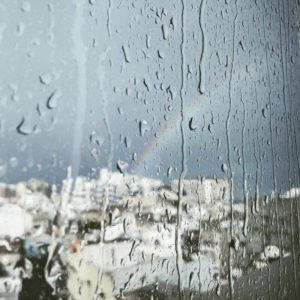Most people would list a chimney fire as the most likely threat to your chimney, but the Chimney Safety Institute of America (CSIA) tells us otherwise. According to the CSIA, nothing is more damaging to your chimney than prolonged water exposure. Because chimneys are located on the top your home, shielding a chimney from water, rain and snow is nearly impossible. Here is what you need to know about the effects of water damage on your chimney and what you can do to protect your chimney and home from it.
Why is water so dangerous for a chimney?
 Water is so problematic for chimneys. According to the CSIA, because the masonry materials used to build your chimneys are porous. Therefore, it is highly susceptible to water damage. Bricks, stone and the mortar absorb any water they come into contact with. The water alone can weaken these masonry materials. However, water trapped within the masonry is even more damaging when it freezes and expands. Water penetration in your chimney masonry can have a variety of damaging effects including:
Water is so problematic for chimneys. According to the CSIA, because the masonry materials used to build your chimneys are porous. Therefore, it is highly susceptible to water damage. Bricks, stone and the mortar absorb any water they come into contact with. The water alone can weaken these masonry materials. However, water trapped within the masonry is even more damaging when it freezes and expands. Water penetration in your chimney masonry can have a variety of damaging effects including:
- Chimney leaks. Water that penetrates the chimney masonry causes cracks and weakness in the chimney. Eventually, this will result in chimney leaks. Water seeps into your home’s structure, causing a variety of other problems.
- Weakened chimney structure. As water freezes and expands inside your chimney masonry, it weakens the chimney structure. Mortar joints become soft and begin to crumble, and bricks can crack and crumble away fast.
- Mold and mildew. Everyone knows that moisture leads to mold and mildew growth. Water intrusion through your chimney can cause mold or mildew to grow on the outside of your chimney, causing unsightly discoloration.
How can you protect your chimney from the effects of water damage?
The only way to protect your chimney from water damage is stop water from entering your chimney’s masonry! This can be achieved with a waterproofing solution from ChimneySaver. Professionally and properly applied ChimneySaver prevents 97 percent of moisture from entering your chimney’s masonry materials. ChimneySaver is also 100 percent breathable for your chimney, so any water that does enter your masonry can evaporate out.
How is ChimneySaver applied to your masonry chimney?
However, if you are considering waterproofing your chimney, it first must be cleaned. ChimneySaver does not lock in any dirt and grime. Any minor chimney repairs will also need to be taken care of before it is sealed. The adjacent areas of your home will be protected from ChimneySaver, and the solution will be sprayed onto your chimney’s masonry.
If you’re ready to protect your chimney from the damaging effects of water, call Environmental Chimney Service today! We can waterproof your chimney to keep your chimney and home safe from water damage.
